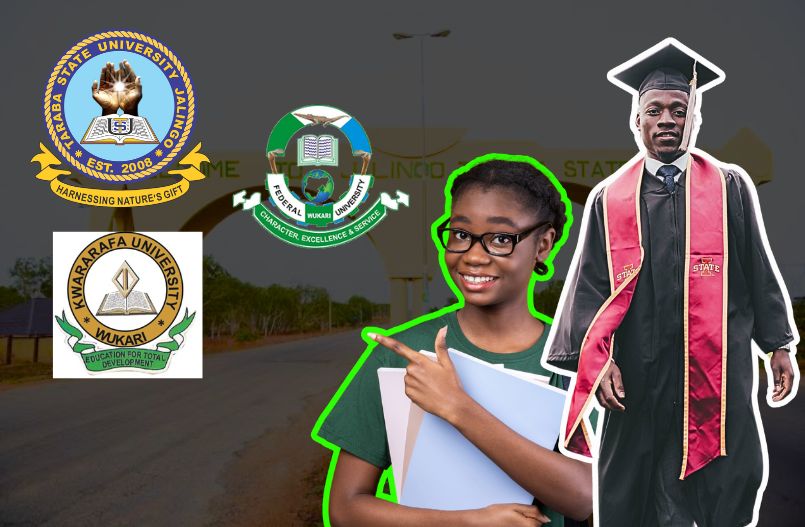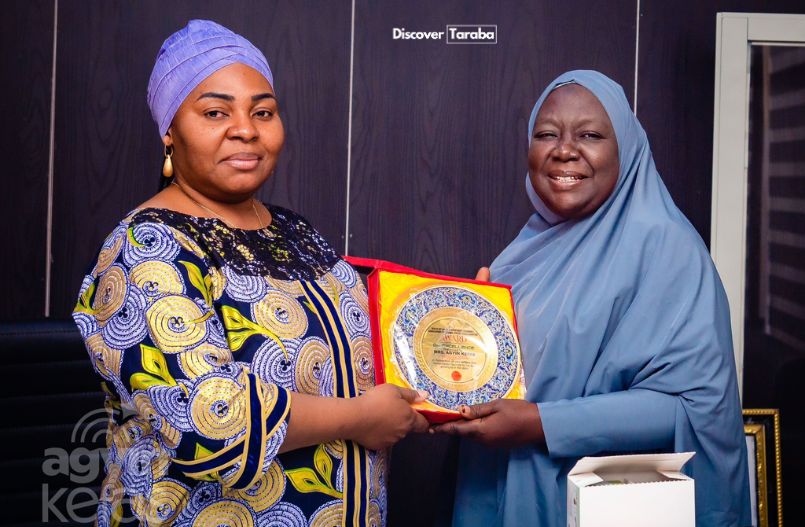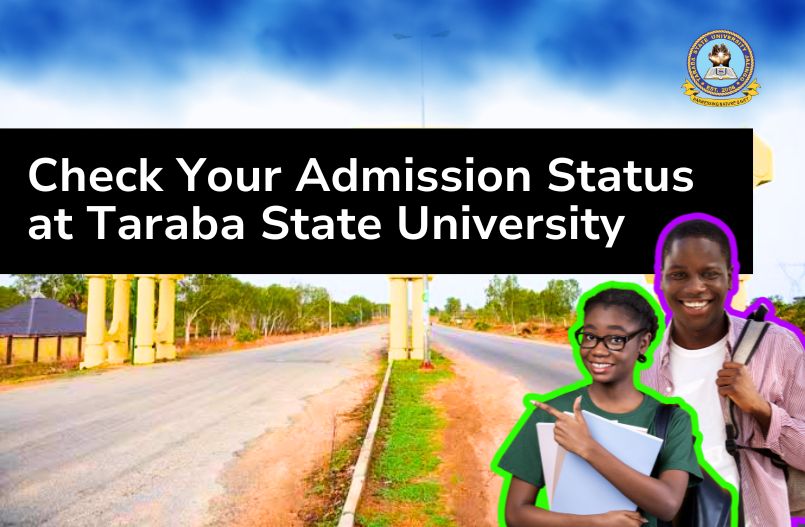Are students in Taraba really ready for AI-powered learning? What if I told you the shift is already happening — and it’s reshaping how math is taught in Wukari, faster than you think?
Let’s break it down.
Wukari Metropolis, tucked inside Taraba State, isn’t the first place you’d expect to find Artificial Intelligence changing classrooms. But a recent study just proved something powerful:
AI isn’t just coming to schools in rural Nigeria — it’s already here.
And it’s not replacing teachers. It’s helping them teach better.
In this post, we’re diving into the real perceptions of teachers and students in Wukari when it comes to AI in math education — and why this matters for the future of learning in Taraba (and beyond).
Let’s get into it.
What the Research Says — And Why It Matters
A group of 170 participants — 150 SS2 students and 20 math teachers — were surveyed across government secondary schools in Wukari.
The focus?
Their real, unfiltered perception of AI in the teaching and learning of mathematics.
Here’s what stood out:
-
Students are not afraid of AI. In fact, many are already engaging with AI-powered tools during lessons. Think interactive math software, intelligent tutors, and automated feedback systems.
-
Teachers are cautiously optimistic. They see the benefits — improved student engagement, faster grading, personalized learning. But there’s also a fear: Will AI reduce their role in the classroom?
-
AI is already improving how students learn math. When used right, it supports better problem-solving skills, boosts confidence, and makes abstract concepts feel real.
Now let’s unpack what this means for education in Taraba.
How AI Is Making Math Less Scary (and More Fun)
If you’ve ever watched a student struggle with fractions or algebra, you know how discouraging math can feel.
Now imagine this:
You’re a student in Wukari. You open an app, solve a math problem, and instantly get feedback. Not just “right” or “wrong” — but a breakdown of why, plus extra help based on where you got stuck.
That’s what AI is bringing to the table.
Students in this study reported feeling more in control of their learning. The lessons were more interactive. The explanations made more sense. And best of all? They could practice without the pressure of embarrassment or time limits.
That’s a game-changer.
Why Teachers in Wukari Don’t Need to Fear AI — They Need to Leverage It
Let’s address the elephant in the room.
Some teachers in the study shared concerns about being “replaced” by AI. And that’s completely valid. When something new shows up — especially something as powerful as artificial intelligence — it’s normal to wonder, “Where do I fit in?”
But here’s the truth:
AI isn’t here to replace teachers. It’s here to support them.
Think of AI as a teaching assistant that works 24/7. One that:
-
Grades quizzes in seconds
-
Tracks individual student progress in real time
-
Suggests which students need extra help
-
Recommends personalized resources for each learner
This doesn’t take away from the teacher’s role. It amplifies it.
Instead of spending hours marking scripts or repeating the same explanations, teachers can now focus on what truly matters — connecting with students, inspiring confidence, and unlocking the “aha!” moments that spark real learning.
AI handles the heavy lifting.
You bring the heart.
And when teachers lean into this tech, they go from being instructors… to being learning architects.
ALSO READ:
What This Means for Education in Taraba (and the Rest of Nigeria)
Let’s zoom out for a moment.
This study from Wukari is a big deal — not just because of what it reveals, but because of what it represents.
It tells us that:
- Students in rural Nigeria are ready for 21st-century learning
- Teachers are open to innovation — if it empowers them
- AI can bridge gaps in our education system, starting from the grassroots
In a region where classrooms are often overcrowded, resources are limited, and teachers are stretched thin, AI becomes more than a nice-to-have.
It becomes a lifeline.
The real opportunity? Scaling this success across other parts of Taraba.
Imagine a future where every public school in the state has access to AI tools that adapt to local needs, languages, and learning styles. Where students in Jalingo, Takum, and Gembu all get the same high-quality, personalized math experience — without needing a private tutor.
That’s not just possible.
That’s where we’re headed.
What Needs to Happen Next: Action Steps for Educators and Policymakers
The potential is real. But turning potential into impact requires bold steps — especially from those leading our schools and shaping education policy in Taraba.
Here’s what needs to happen now:
1. Invest in AI Tools That Match the Curriculum
Let’s be honest — not all tech is created equal. School leaders should prioritize AI tools that align with the Nigerian curriculum and are easy for both students and teachers to use.
Think interactive math platforms like:
-
Simulations that visualize equations
-
AI tutors that provide step-by-step feedback
-
Apps that work offline or with minimal data
2. Train and Empower Teachers
AI is only as powerful as the people using it. That’s why training is key.
Teachers should be given hands-on workshops and ongoing support to:
-
Integrate AI tools into their lessons
-
Understand how to use data insights for student progress
-
Build confidence in their evolving role as tech-savvy educators
3. Make AI Education Policy a Priority
For AI adoption to grow, state education policies must evolve too.
This means:
-
Including AI literacy in teacher training colleges
-
Adding digital learning tools to school funding plans
-
Partnering with ed-tech companies to pilot AI projects in rural areas
Wukari has already shown us what’s possible. Now it’s time to scale what works.
The Bigger Picture: Why This Matters for Taraba’s Future
Education is the foundation of every thriving society. And in places like Taraba — where innovation often arrives last — we now have the chance to leap ahead, not fall behind.
By embracing AI in schools, we’re not just improving test scores.
We’re:
-
Raising a new generation of problem-solvers
-
Closing the gap between rural and urban education
-
Equipping students with the digital skills they’ll need to thrive globally
This isn’t just about math.
It’s about momentum.
And Wukari is showing the rest of Nigeria that change doesn’t have to start in the capital — it can start right here, in Taraba.
Final Thoughts: Taraba’s Classrooms Are Evolving — Let’s Keep Pushing Forward
What’s happening in Wukari is more than a study. It’s a spark.
And if we keep that spark alive — with the right tools, training, and leadership — it could light up classrooms across the entire state.
So if you’re an educator, a policymaker, or just someone who believes in the power of education…
Now is the time to act.
Support AI-driven learning. Empower our teachers. And give our students the tools to thrive — not just locally, but globally.
Because the future of education in Taraba isn’t coming.
It’s already here.




0 Comments